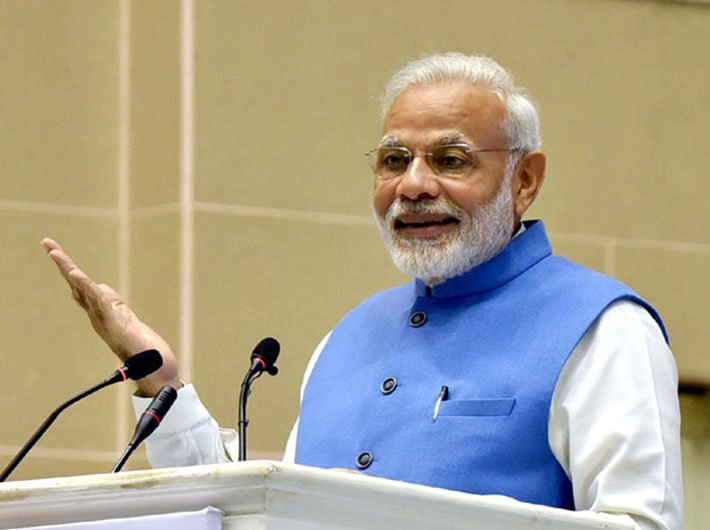Taking Rs 500 and Rs 1,000 notes out of currency is, of course, not enough to fight black money. In the days to come, the Modi government will have to take a series of moves to make this step effective. He has himself promised that his government will now get touch on benami property – which like gold and dollars is one of those avenues where unaccounted cash is parked.
There is indeed a law under which the government can confiscate benami properties, but it has not been effectively implemented. The PM’s principal secretary and former IAS officer Nripendra Misra had written an article for Governance Now on this law. The article, co-written by Tannu Singh of the Public Interest Foundation (which was then headed by Misra), was published in the July 1-15, 2011 edition. Read on:
Fighting corruption, on paper
Shocking but true: A law to curb benami deals has been in existence for 23 years now but it remains to be implemented
By Nripendra Misra and Tannu Singh
Benami transactions contributing to the making of a parallel black-money economy trace a long history in India. It was as early as 1778 that Justice Hyde’s notes made a mention of it after the establishment of British rule in India. In 1882, the courts were forced to enforce it when the Indian Trusts Act under its sections 81 and 82 recognised the benami transactions.
In 1976, i.e., post independence, parliament intervened for the first time when it barred all suits in relation to benami properties. Moving ahead to further check its growth, parliament totally prohibited benami transactions, making it an offence and prohibiting all suits and claims actions based on benami transactions. But as the abuse and fraud around the benami transactions continued unabated, parliament was pushed to repeal section 82 of Indian Trusts Act and Section 281A of the Income Tax Act along with other consequential repeal.
It was at this stage that the law commission on request also submitted its recommendations as 57th report after examining the benami transactions in all its ramifications. In order to implement these recommendations, the president promulgated the Benami Transaction (Prohibition of the Right to Recover Property) Ordinance, 1988. The ordinance was seen as not dealing with the problem of benami transactions in its entirety. Thus the law commission was requested once again to examine the subject. It then submitted its 130th report, titled ‘Benami Transactions – a Continuum’. Based on the law commission recommendations through its 130th report, the ordinance was converted into an Act by introduction of a bill in the parliament. And this Act was called the Benami Transactions (Prohibition) Act, 1988.
The very recent case in the chain of events which has once again brought to the fore the issue of fraud carried out under the garb of benami transactions is the case of Adarsh Society, Mumbai, where about 35 flats were reported to be owned in benami names.
Not that there is no awareness or no mechanism to effectively deal and curb these benami transactions. Ever since 1988 there has existed the Benami Transactions (Prohibition) Act, but has still not been implemented, thereby failing to impact benami transactions. If even after 23 years of its enactment the rules for carrying out the purposes of this Act have still not been framed, there is no clarity on the issues like recovery procedure, punishments incurred, and competent authority in-charge, then who is to be blamed for this entire situation?
For the last 23 years there has only been an acknowledgement about the several loopholes present in the Act as one of the very obvious reasons for its non-implementation like for example the burden of proof about whether a transaction is benami is only on the person who alleges that it is such; but how do we, as a responsible democracy, account for the fact that we have still not been able to provide effectively for filling up these lacunae, thereby making the Act implementable?
The second administrative reforms commission in its fourth report strongly emphasised that steps should be taken for the immediate implementation of the Benami Transactions (Prohibition) Act, 1988, as an important measure to deal with the issue of corruption. Also, in a reply to a starred question on February 23, the department of revenue, under the ministry of finance informed the Lok Sabha that a draft Benami Transactions Prohibitions Consolidation (Amendment) Bill had been prepared by the department of revenue, which had also been vetted and approved by the ministry of law and justice. It is now being processed for approval of the cabinet after which it will be introduced in parliament.
The Public Interest Foundation has moved a Right to Information (RTI) application to the department of revenue seeking to ascertain the present status of implementation of the Benami Transactions (Prohibition) Act, 1988.
After a long period of stagnancy, the above development finally shows some ray of hope. But this action needs to be followed up at an urgent pace to help it reach some effective conclusion. Exigency of efficacious action is prompted not only in order to safeguard the credibility of democracy; but also in order to curb the growth of a parallel economy in India which, according to a World Bank study called ‘Shadow Economies All over the World’, has swelled to around Rs 15 lakh crore.
